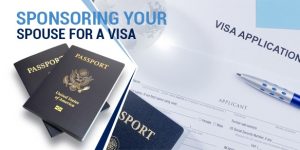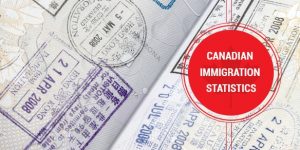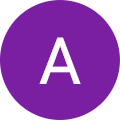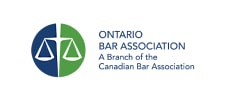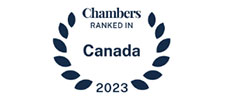Two new streams were announced for the Economic Mobility Pathways Pilot on June 12, 2023, that will allow Canadian employers to access a pool of skilled refugees and other displaced persons from around the world. The two new streams are:
1) EMPP Federal Skills Job Offer Stream:
This applies to qualified candidates that have been hired by a Canadian and fills a wide range of in-demand jobs such as:
- Nurse aides
- Personal support workers
- Long term care aides
- Software engineers
- Web designers
- Mechanical and electrical engineers and technicians
- Logistics and warehouse workers
- Tourism and hospitality workers
- Truck and delivery service drivers
2) EMPP Federal Skills Without a Job Offer Stream:
This applies to certain candidates with skills that are high enough in demand that they will find work after they arrive in Canada.
These new streams aim to reduce barriers for economic immigration and fill in-demand jobs in Canada while complementing Canada’s existing humanitarian commitments.
Candidates who apply through these new streams do not need any Canadian work experience to apply, but they must meet minimum requirements for language, past work experience and education. Those who apply through the EMPP Federal Skills Without a Job Offer Stream will also have to show proof of an education credential assessment and that they have a certain amount of funds available to show that they are able to establish themselves in Canada.
What is the EMPP?
The EMPP is a program that helps skilled refugees immigrate to Canada through existing economic programs and obtain permanent residence. Applicants that are refugees or displaced persons with strong economic settlement potential that have skillsets to fill in-demand jobs can qualify to apply under EMPP.
EMPP serves as a complementary pathway to allow people in need of protection to come to Canada. Those that come to Canada through EMPP will enter as economic immigrants and not resettled refugees, allowing spaces for resettled refugees to be left for those with greater vulnerability.
How does EMPP work?
1) To qualify for EMPP, you must be a refugee or a displaced person.
To prove this, you must have one of the following documents:
- a positive Refugee Status Determination (RSD) from the UN Refugee Agency or a refugee-hosting state
- proof you’re registered or recorded as a person of concern by the UN Refugee Agency
- a refugee certificate from the United Nations Relief and Works Agency for Palestine in the Near East (UNRWA)
- proof of being registered or recorded as a person of concern with UNRWA
- proof you have temporary protected status and an assessment by an IRCC officer that you don’t have a durable solution
If you are unable to provide one of the above documents, you can go to a trusted partner organization so that they can assess your eligibility as a refugee or displaced person.
Importantly, you must be living outside of Canada when you apply to the EMPP.
2) You must meet the criteria of one of the EMPP pathway
Regional EMPP, through an economic immigration program, you would have to be eligible through 1 of the following:
- Atlantic immigration program (AIP)
- Provincial nominee program (PNP)
- Rural and northern immigration pilot (RNIP)
You would also have to meet the qualification criteria of:
- French or English skills
- Education or job training, and work experience
- A job offer from a Canadian employer for full-time work
Federal EMPP, the new streams introduced focus on work experience, education and language skills. It now allows eligible candidates to apply through this new pathway with a job offer or without a job offer.
With a job offer, you will need to meet the following criteria:
- Have a job offer that is:
- Full-time – at least 30 hours of work over a period of one week
- Non-seasonal
From a Canadian employer - For a job listed in TEER categories 0, 1, 2, 3, 4, 5 of the National Occupations Classification (NOC)
- Work experience that is:
- At least 1 year of full-time, paid work experience (1,560 hours) or an equal amount of part-time work
- Be over any period of time
- Be within TEER category 0, 1, 2, 3, 4, 5
- Can include periods of self-employment
- Education:
- Your training, education, experience and responsibilities must align with the TEER category of your job offer
- Language skills:
- Prove your official language skills sing an approved language test in English or French
- Have the minimum score for your job’s TEER category
Without a job offer, you will need to meet the following criteria:
- Work experience that is:
- At least 1 year of full-time, paid work experience (1,560 hours) or an equal amount of part-time work
- Gained over the last 3 years before the date we get your application
- Is in TEER category 0, 1, 2, or 3 of the NOC
- Does not include any period where you were self-employed
- Education that shows a:
- Canadian secondary school credential, or
- Foreign degree, diploma or certificate with an educational credential assessment issued no more than 5 years from the date your application is received
- Language skills, where you must:
- Prove your official language skills using an approved language test in English or French
- Get a minimum score of at least CLB/NCLC 7 in each of the 4 language abilities
- For settlement funds, you must prove you have enough money to support yourself and your family in Canada, which can include:
- Grants, gifts and community donations
- Household income that you, your spouse or partner and any dependants earn
3. You must be admissible to Canada
What is the benefit of choosing EMPP?
The EMPP allows for an easier and faster route for refugees and displaced persons to come to Canada and gives you a chance to make the most of your skills to improve your life and those of your families. Through EMPP, most applications will be reviewed and processed in 6 months or less. Additionally, application fees and biometric fees will be waived and the cost of medical exams will be covered. You will also be able to access the Immigration Loans Program and the EMPP-specific Canadian Orientation Abroad Programme to help ease the process of your settling in Canada.


